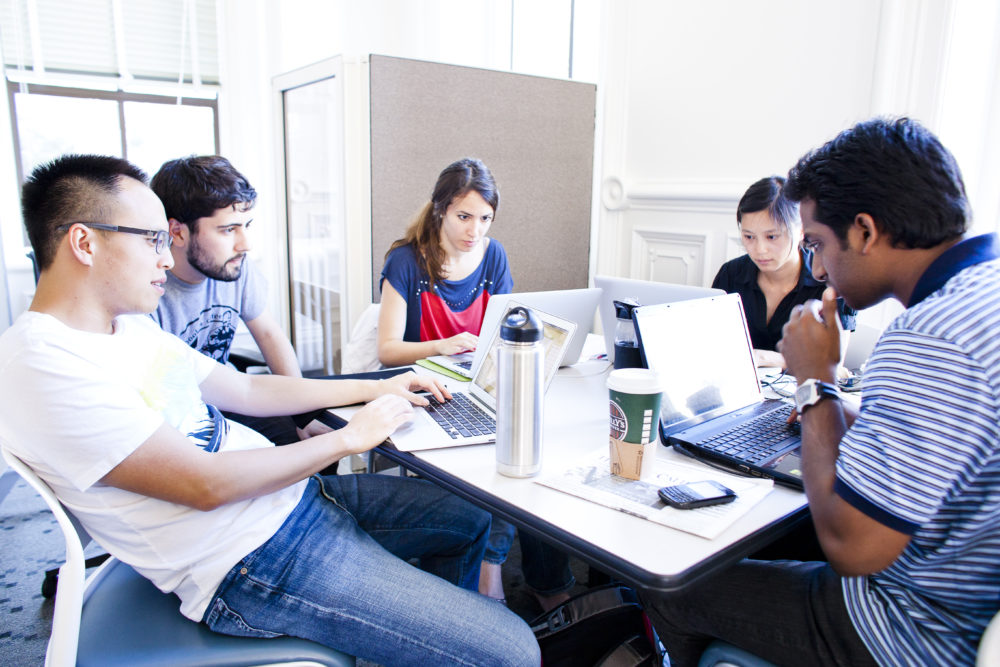By Yadira Galindo, Communications and Media Relations Manager, UCSD Health. Think you have an idea that will change health care but need the means to bring your innovation to fruition? Register for UC Health Hack, a two-day interdisciplinary hackathon that will bring students, physicians, researchers, industry professionals and community members together to grapple with integrative medicine and global health issues in a fast-paced competition.
UC San Diego Health, Rady Children’s Hospital-San Diego, UC Irvine Health and the UC San Diego student-led chapter of Engineering World Health are partnering for the first time to host the hackathon March 4-5.
“Our mission is to engineer medical devices that will impact a wide group of people, particularly in low-resource communities,” said Yajur Maker, a bioengineering student at UC San Diego Jacobs School of Engineering and president of the UC San Diego chapter of Engineering World Health. “At this year’s UC Health Hack, I am really hoping to see jaw-dropping innovation that will develop through multidisciplinary expertise coming together in one place. We want to innovate and save lives.”
This year, the three hospital systems will lend health care experts to guide participants through problems faced in the medical field.
“People come to us with ideas that they believe will solve health care problems, but often times, these entrepreneurs miss the mark because they don’t understand how health care works,” said Josh Glandorf, director of hospital affiliations in the Department of Information Services (IS) at UC San Diego Health. “During the hack, we will describe challenges to help participants converge on an idea and develop real-world solutions.”
Last year, Ella Stimson was one of more than 150 UC San Diego students who participated in the annual hackathon. Tasked with identifying and addressing a specific topic within mental illness in low resource settings, the students had 24 hours to develop their idea.
Stimson and two of her fellow Jacobs School bioengineering students, Niranjanaa Jeeva and Julie Yip, drew from the experience of loved ones who faced postpartum depression and took first place in the 2016 hackathon. According to the World Health Organization, 13 percent of women experience a mental disorder after child birth. In developing countries, that number is as high as 20 percent.
“A family member shared her experience with postpartum depression,” said Stimson. “This insight helped me see that there is a disconnect among some women with their babies. After nine months of bonding with a baby that is growing inside, a woman might feel alone after child birth.”
To help bridge the disconnection, Stimson and team designed the Amniotic Wrap, a blanket that vibrates to the pulse of a baby’s heartbeat. A baby’s heart rate is measured through a sock. The rhythmic pulse generated from the sock is delivered via Bluetooth to a blanket a mother wraps around herself to feel intimately connected to her child even when not holding her baby.
“We continuously strive to find impactful solutions to critical medical problems,” said Jim Killeen, MD, clinical professor of Emergency Medicine at UC San Diego School of Medicine and medical director in the Department of Information Services. “The UC Health Hack brings excitement of innovation with fresh ideas from the talented people who surround us. The concepts that emerge could be the answer to improved patient experience, quality of life and close health care gaps.”
This year, with the support of the three health systems and UC San Diego incubators, winning teams will have the opportunity to develop their ideas through mentorship, access to lab space and funding opportunities. There will be $12,000 in prizes awarded to winners.
The hackathon is free and open to anyone 18 years old and up. Attendance will include undergraduate and graduate students, programmers, developers, designers, clinicians, patient advocates, researchers and entrepreneurs. Space is limited and requires an advanced application. To find out more and to apply as a participant, please visit: uchealthhack.ucsd.edu

